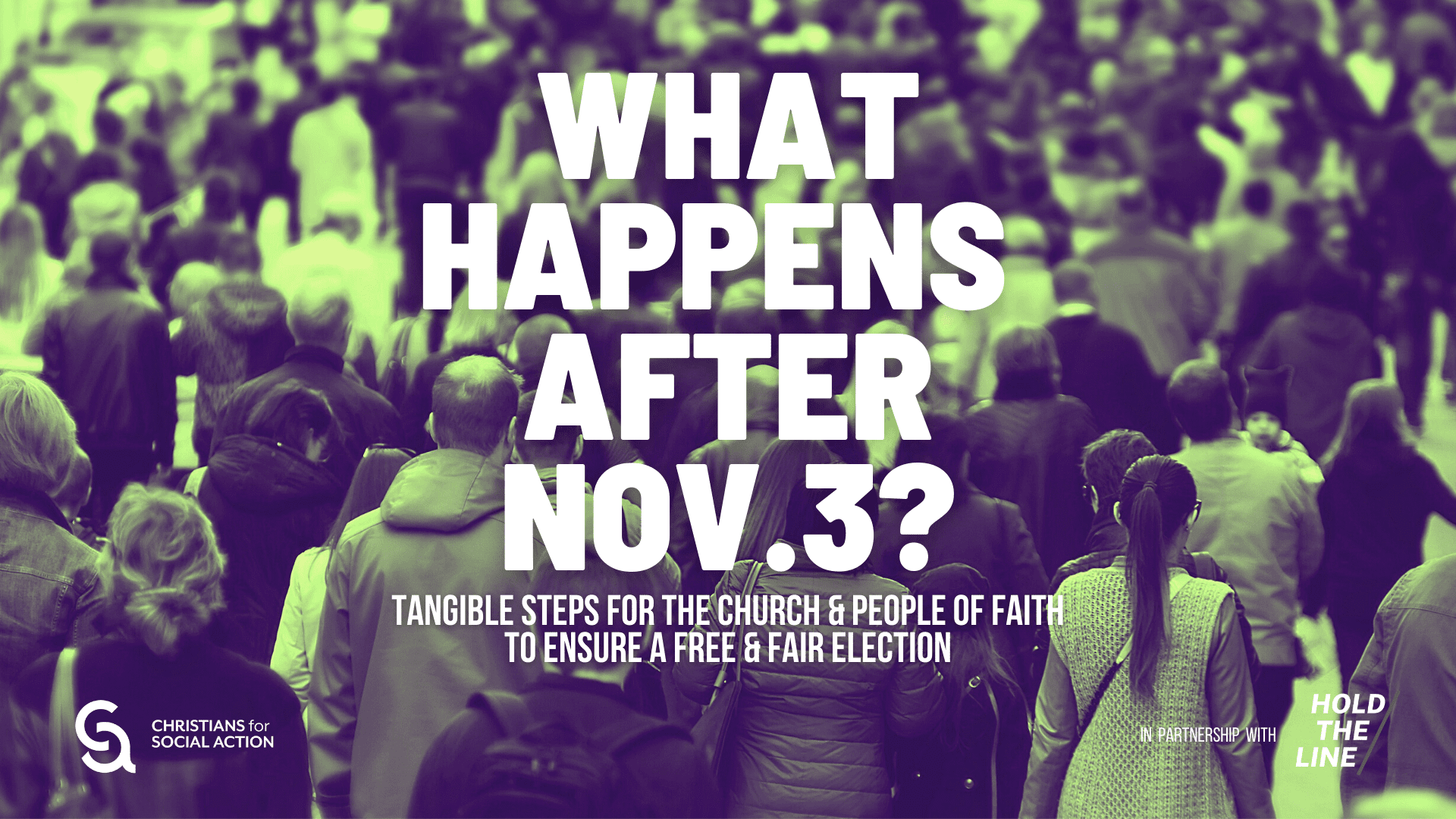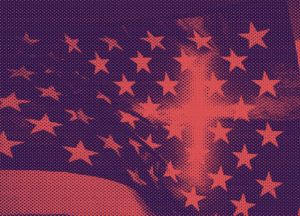 We invited the creative team behind the Hold the Line Guide to Defending Democracy to explore tangible steps that the church, people of faith, and ministry leaders can take to ensure a free and fair election. CSA Racial Justice Institute Program Manager Andre Henry introduces our guests: Listen in to learn … and leave inspired! (And check out the additional resources below the video.)
We invited the creative team behind the Hold the Line Guide to Defending Democracy to explore tangible steps that the church, people of faith, and ministry leaders can take to ensure a free and fair election. CSA Racial Justice Institute Program Manager Andre Henry introduces our guests: Listen in to learn … and leave inspired! (And check out the additional resources below the video.)
Special thanks go to our co-sponsors, Red Letter Christians and Freedom Road.
Hold the Line final cut from Christians for Social Action on Vimeo.
More tools!
Action Item – Needed: Pastors at the Polls
Pastors are urgently needed to be present at polling stations to make sure voters are not intimidated. We know from the past that a variety of tactics have been used at voting places (especially minority locations) to frighten and intimidate people coming to vote. One great way to protect against that is to have pastors in clerical garb (collars and/or robes) at those locations. Just their presence will discourage tactics of intimidation.
Barbara Williams-Skinner and Jim Wallis have put together a very important program in 9 states (including Pennsylvania, Michigan, Wisconsin, Florida and Ohio) to train clergy to do this important work. Go to Turn Out Sunday to learn more and sign up for their free training.
Additional Resources
- Commitment to Uphold Democracy: A Campaign Planning Guide (from Hold the Line)
- Brainstorming Tactics (from Hold the Line)
- Power Map (from Hold the Line)
- Brandi Miller’s podcast, “Reclaiming My Theology,” takes on American politics and asks CSA Executive Director Nikki Toyama-Szeto, “What are Christian Politics?”
- For Love of Neighbor: Politics for the Common Good is a documentary that tells the stories of three individuals—Sen. Tim Scott, Justin Giboney, and Sarah Imboden—who, on different levels and in distinct ways, are seeking to engage faithfully in contemporary American politics. The film does not provide specific answers for how Christians should engage in politics—but instead explores foundational questions about the purpose (and limits) of politics and the proper Christian posture toward government and secular society. Ultimately, the film aims to spark further discussion and offer a hopeful vision for Christian participation in contemporary public life.
- Faith on the Ballot is a weekly sermon series leading up to the 2020 presidential election, with prominent pastors and activists lending their voices to issues that intersect with racism—the primary religious issue of this election.
- Faith in Public Life offers a terrific Faithful Voter Toolkit, designed to give faith leaders easy access to ideas for engaging their congregations and communities through sermon suggestions, scriptures, talking points, social media and more.
- These CSA initiatives frame the issues and put lots of tools in your hands to make short- and long-term changes at both personal and societal levels:
- And check out our rich library of resources on pretty much every major justice issue! Create your own curated list by clicking on your topic of interest on the left of the screen.


